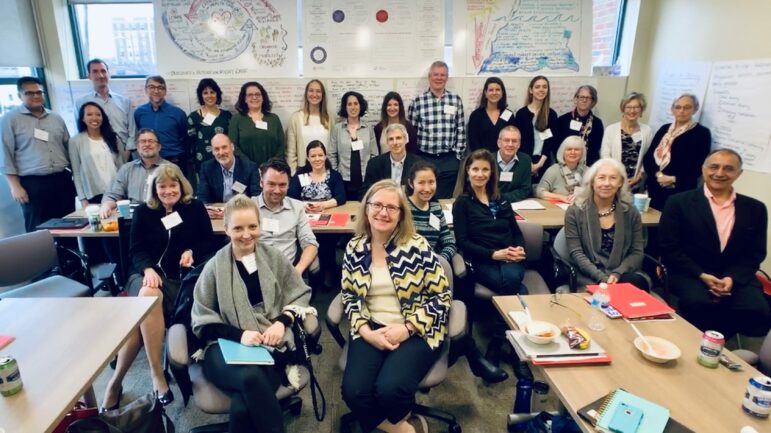The Lown Institute just released a new report, Medication Overload: America’s Other Drug Problem, to raise awareness about the harm from overuse of medications, especially for older Americans. If current prescribing trends continue, over the next decade there will be 4.6 million hospitalizations and 35 million outpatient visits of older Americans because of serious serious drug side effects.
Awareness is a crucial first step to solving the complex problem of harmful polypharmacy, but there are so many more ways we need to take action on this issue. The Lown Institute has been convening a working group of experts in medication use, including patients, doctors, nurses, researchers, and pharmacists, to create a National Action Plan for addressing medication overload. We are also bringing together policy and advocacy experts into an Advisory Committee. The working groups began meeting in July 2018 and will continue to throughout this year to discuss the recommendations until a final version of the Action Plan is published in early 2020.
This weekend was a milestone in the action plan process, as about 30 working group and advisory committee members came to Boston to discuss the project in person and hash out complex issues. Here are a few of the questions that the working group and advisory group members discussed:
- Should interventions be targeted at the people most at risk, or try and impact the largest population possible? How can we influence patient and clinician attitudes at the same time for the largest impact?
- How can we use policy carefully to give “nudges” to patients and prescribers, without adding to clinician burden and overall cost to the system?
- Can “prescription checkups” provide an opportunity for shared decision making and deprescribing? What would the ideal “prescription checkup” look like?
- How should we/can we use technology to facilitate better medication decisions? When is technology a barrier to careful prescribing?
- What actions can we implement right now to reduce harm? What do we want to see happen 3-5 years in the future?
- Which advocacy groups and professional groups are essential allies for spreading the word? How can we stay connected across groups (and countries) and not get stuck in silos?
Notable quotes from the weekend
“The patient and clinician need a roadmap for medication conversations: Why are you taking these medications, what’s the end goal?” — Poppy Arford, Right Care Alliance Patient Council
“If you like to be right, you should assume that your patients are taking unnecessary medications at too high a dose.” — Dr. James McCormack, Professor, University of British Columbia
“There’s a view that a prescription equals care. We have to make it so that a prescription checkup equals care.” — Dr. Theresa Brown, RN, staff hospice nurse.
“The evidence bar for prescribing is very low, but the bar for desprescribing is set very high.” — Alan Cassels, Communications director, UBC.
What’s next?
The working groups will continue to develop recommendations for the action plan, which will be published in parts over the next few months. Some of our key goals are to find ways to engage stakeholders and advocacy groups to be partners in this work, as well as map out a path to achieving specific policy goals for both the short term and long term to reduce medication overload.
Stay tuned for more to come on Medication Overload and Deprescribing!
